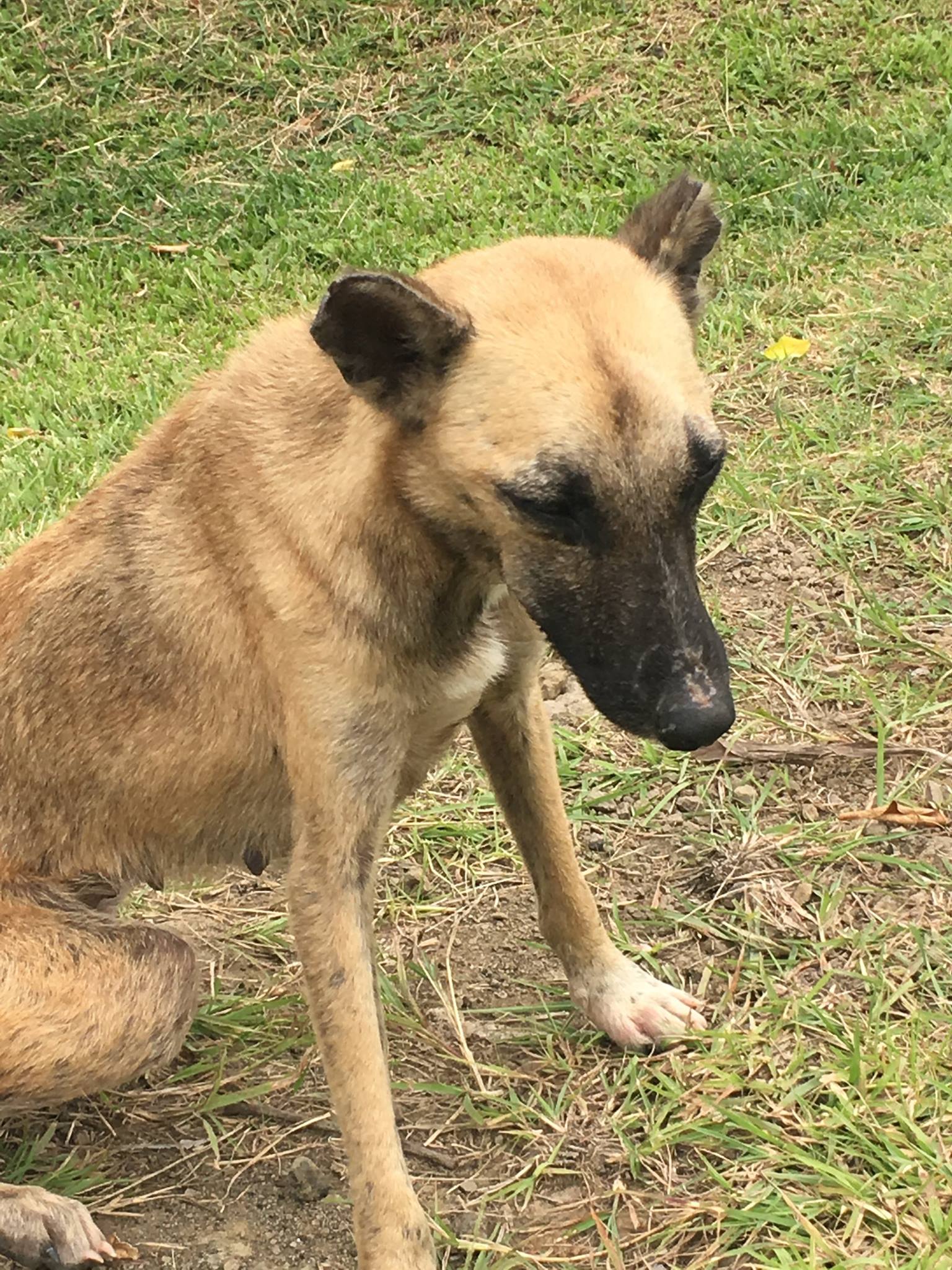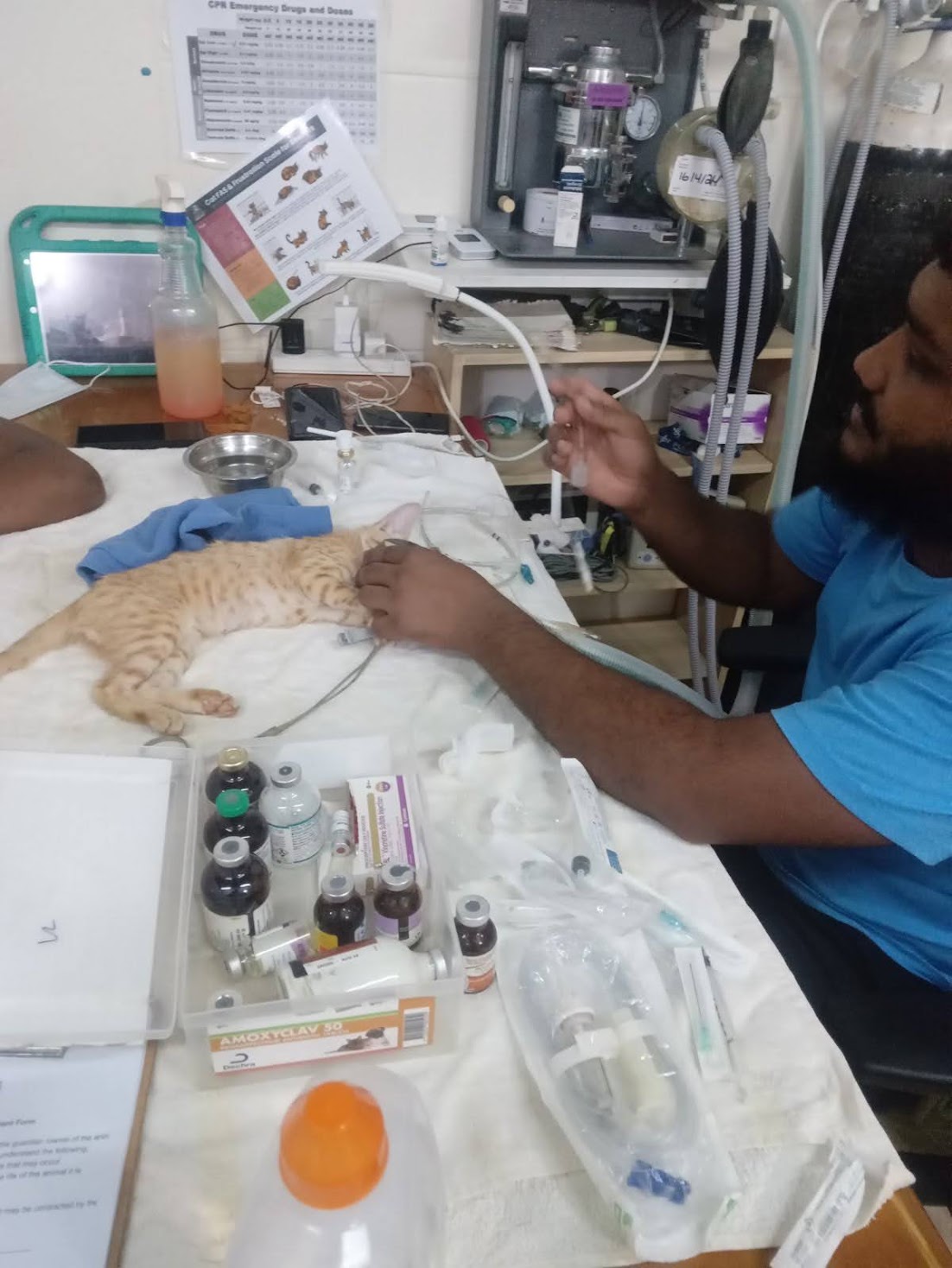Across Fiji and many parts of Melanesia, home remedies have been passed down for generations. From using coconut oil to soothe skin to traditional herbal concoctions for treating wounds, these “natural” treatments are often the first response in rural and even urban households—for both people and animals. But while these remedies may seem harmless, or even helpful, when it comes to our pets, some can be not only ineffective but dangerously toxic.
As part of our ongoing mission to improve animal welfare in Fiji, Animals Fiji wants to raise awareness about the risks of using traditional or "natural" remedies on pets without proper veterinary guidance. At Animals Fiji, we see too many heartbreaking cases of animals suffering—not from illness or injury alone, but from well-intended but dangerous home treatments. It's time to separate the myths from the facts.
Rani’s Story: A Life Lost to Misinformation
In recent, a 9-week-old puppy named Rani was brought to our Lautoka clinic. Rani had been treated at home for fleas and ticks using ant chalk and Raid insect spray—substances never meant for animal use.
When Rani arrived, he was lethargic and struggling to breathe. We transferred Rani to our Nadi clinic where we have a hospital. Despite our team’s best efforts, including IV fluids, detoxification support, and the best medical care possible monitoring, Rani passed away due to severe chemical toxicity.
Rani’s owners loved him. They believed they were helping. But using harmful products instead of seeking proper veterinary care ultimately cost Rani his life.
Let his story be a lesson—and a call to action—for all pet owners across Fiji.

Sick pup from toxicity
Myths vs. Facts: Common and Dangerous Misbeliefs
Myth #1: Household insecticides like ant chalk or Raid spray are safe to use on pets to kill fleas and ticks.
Fact: Products like ant chalk, Raid, and other household insecticides are extremely toxic to animals. They are not designed for use on skin and can be absorbed into a pet’s body, leading to poisoning, seizures, organ failure, and even death—as tragically happened with 9-week-old Rani. Pets need treatments specifically designed for them. Never use human or household products on animals unless a vet says it’s safe.
Myth #2: Coconut oil can cure mange and all skin conditions.
Fact: Coconut oil can help moisturize dry skin, but it won’t cure mange, fungal infections, or bacterial skin problems. In fact, using too much oil can trap heat and bacteria, making skin conditions worse. Mange is caused by microscopic mites and requires prescription medication to heal. Coconut oil is okay for mild dry skin in small amounts—but it should never replace proper medical care.
Myth #3: Applying crushed garlic or onion keeps fleas and worms away.
Fact: Garlic and onion are toxic to dogs and cats. Even small amounts can damage their red blood cells and lead to anemia or other serious illness. What many don’t realize is that toxicity can build up over time—because dogs and cats can’t process these ingredients the way humans do. Repeated use, even in tiny doses, can be just as dangerous as a single large amount. For fleas and worms, stick to safe, vet-approved treatments.
Myth #4: Pouring kerosene or diesel on wounds kills infection.
Fact: Kerosene, diesel, and petrol products are poisonous and can cause serious chemical burns when applied to the skin. Instead of cleaning the wound, they damage healthy tissue, delay healing, and cause severe pain. We have treated many animals suffering from burns and infections made worse by these “remedies.” Always clean wounds with clean water or saline, and seek veterinary care.
Myth #5: Turmeric and seawater can cure all injuries.
Fact: While turmeric has anti-inflammatory properties in controlled doses, applying raw turmeric or using seawater is not a substitute for real wound care. Seawater can carry bacteria, and turmeric can irritate open wounds. Cuts and abscesses need to be cleaned with sterile solutions, and serious wounds require antibiotics or medical attention to prevent infection.
Myth #6: Papaya seeds or bitter herbs work as natural dewormers.
Fact: There is no reliable scientific evidence that papaya seeds, bitter herbs, or traditional concoctions remove intestinal worms in dogs or cats. Meanwhile, worms can cause weight loss, weakness, and long-term illness. Modern dewormers are safe, affordable, and available through vet clinics and outreach programs. Don’t gamble with your pet’s health—choose proven treatments.
Myth #7: Raw eggs or coconut milk help with poisoning.
Fact: When a pet has been poisoned, raw eggs or coconut milk will not “neutralize” the toxin—and may actually make things worse. These can cause vomiting, choking, or delay life-saving veterinary treatment. Time is critical during poisoning cases. If you suspect poisoning, contact a vet immediately—don’t rely on home remedies.
Myth #8: Cutting a dog’s ears makes them hear better—especially for pig hunting.
Fact: This is a dangerous and harmful belief. Cutting a dog’s ears does not improve hearing. It causes immense pain, exposes the dog to infection, and can lead to disfigurement and chronic health issues. Dogs rely on their ears for more than hearing—communication, balance, and protection. Ear mutilation is animal cruelty and should never be practiced.

Dog with cropped ears
So, What Should Pet Owners Do?
We understand that veterinary care isn’t always easy to access—especially in remote areas and outer islands. That’s why Animals Fiji continues to expand our outreach programs and offer low-cost clinics wherever we can.
In the meantime, we urge all pet owners to be cautious. Just because something is “natural” doesn’t mean it’s safe. Dogs and cats process substances very differently than humans—what’s harmless to us can be toxic or even deadly for them.
Before using any home remedy on your pet, ask yourself:
Would I use this on a newborn baby?
If the answer is no—or if you’re unsure—it’s always safer to ask a vet.
And if you can’t reach a clinic in person, Animals Fiji offers remote consultations by phone, Viber, or video call. Please don’t guess—reach out so our veterinary professionals can help.

Cat receiving medical care in Savusavu clinic
Let’s Work Together
If you need advice or want to book an appointment, contact us at Animals Fiji. We're here to support you with reliable information and affordable care options.
Together, we can protect our pets - with facts, not myths.
Animals Fiji helps animals all around Fiji, with clinics in Savusavu, Labasa, Nadi, and Lautoka, and outreach clinics in other areas. If you want to support Animals Fiji in their work or find out more about our services, contact:
- Savusavu Clinic: 998-6253
- Labasa: 998-6250
- Lautoka: 998-2026
- Nadi Clinic: 993-6647
- Website: animalsfiji.org